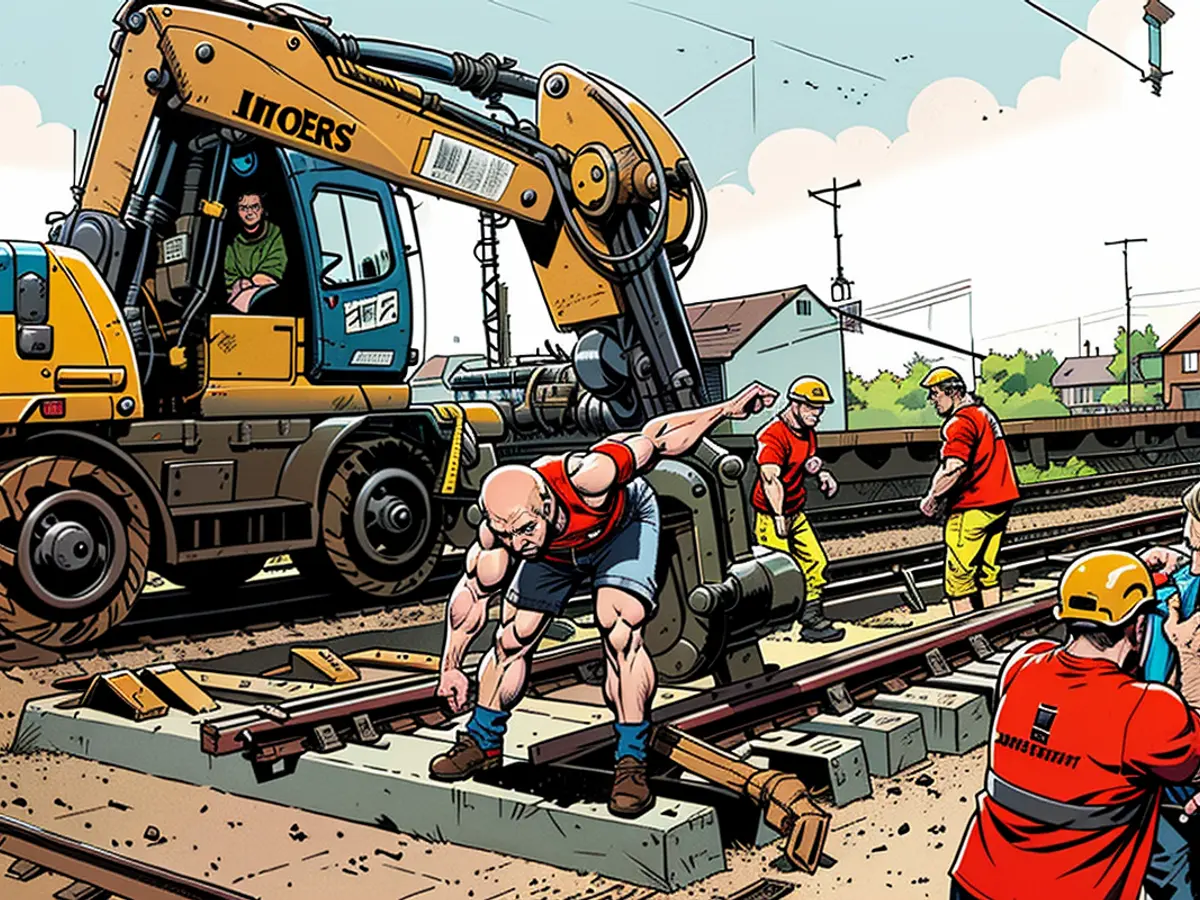Governor Nagl's assertion: Significant development of rail infrastructure is currently unattainable
Due to years of neglect in investments, discussion about improving conditions at Deutsche Bahn is brewing. But with limited funds, significant strides might be challenging. The head of Infrago, the network company, dismisses the possibility of major construction projects, stating other matters require attention.
When it comes to massive expansion and construction projects, the leader of Deutsche Bahn's (Infrago) network company, Philipp Nagl, sees few opportunities for growth. "If we're already struggling to maintain our 33,000 kilometers of track, it only gets harder with each added kilometer," Nagl explained to the "Frankfurter Allgemeine Zeitung" (FAZ). Above all, the current network needs sufficient financing, emphasized the 42-year-old Austrian manager. He mentioned that the Federal Transport Infrastructure Plan consistently includes more projects than end up being executed.
Among these projects are substantial undertakings like the Frankfurt long-distance rail tunnel, scheduled to start construction in the 2030s and open in the 2040s. Nagl didn't directly address this. However, he highlighted that building new tracks, especially tunnels, is expensive to manage: "That's often overlooked." Even pro-rail Switzerland is currently debating this intensively. "Naturally, we undertake essential expansion and new construction projects," said Nagl. But for swift capacity expansion, they're also relying on smaller and medium-sized measures. They aim to complete more than 200 of these by the end of 2027.
Discussing the questionable rail financing in the intermediate term, Nagl said they previously secured funds on an annual basis. Now they have a three-year plan. "We hope and anticipate we can continue at this funding level in 2028 and 2029," said Nagl. However, this is uncertain at present.
The current state of Deutsche Bahn's economy, with its focus on maintaining existing infrastructure, leaves little room for major construction projects, as acknowledged by the head of Infrago, Philipp Nagl. The limited funds allocated to Deutsche Bahn might pose challenges in making significant strides towards improving the economy of the railway system.








